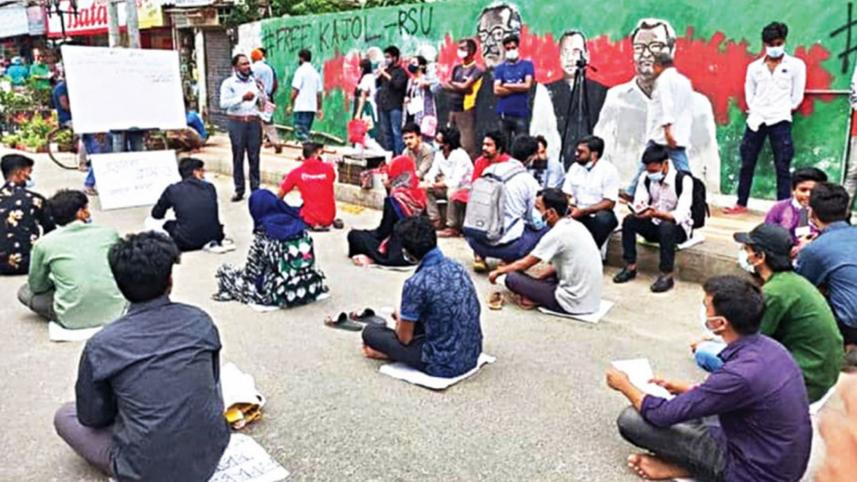High time for in-person learning to restart

A group of teachers from different universities announced on Tuesday that they will start holding symbolic classes in open spaces if the authorities do not reopen universities from the first week of September. Alongside this demand, they have also provided a roadmap to ensure greater safety for students, a precondition for reopening.
According to the roadmap, the residential halls should be reopened immediately (from September 1) for honours and master's students—then for following batches in phases. Exams should only be taken after residential facilities are provided—students staying in dorms and those coming from home should be seated in separate rooms to curb Covid-19 transmission. A hybrid system of education—where students can opt to attend classes either offline or online—should be offered for convenience. And lastly, Covid-19 testing facilities and vaccination centres have to be set up on campuses.
Even after ensuring these steps, there will be plenty more to do, and the University Teacher's Network, as the group of teachers is called, has recognised that. Which is why they have also called on authorities to abolish the "gonoroom" system in halls—and have instead advocated for the transfer of authority back into the hands of teachers from the ruling party's student wing, which has gained enormous influence across university campuses in recent times. Moreover, steps have to be taken to ensure that hygiene rules are being followed.
Given the immense length of time over which most education has remained completely stalled, the authorities should seriously consider these suggestions, as well as others that have been made by academics and experts regarding reopening educational intuitions. The DU authorities have already announced that they will reopen dormitories in the first week of October for the resident students of master's and honours final year, who will sit for their exams, and we believe that is a good first step. But government authorities must provide universities with full support in order for them to reopen safely.
On the flipside, the government should also use this time to make preparations for the reopening of primary and secondary schools. As revealed by Unicef on Tuesday, Bangladesh's school closure since March 17 last year has been the second-longest school closure in the world. This means that, on the educational front, Bangladesh is falling further behind the rest of the world. And this is something that we cannot afford to do. The psychological toll this prolonged closure must be having on students is simply unimaginable. Unless absolutely necessary, we see no reason why reopening of schools should be postponed any further.
At the same time, prioritising the health and safety of all students is vital. For that, academics and other experts have provided the government with plenty of good, workable suggestions. It is now up to the government to formulate those into a system and work alongside educational institutions to implement them effectively.



 For all latest news, follow The Daily Star's Google News channel.
For all latest news, follow The Daily Star's Google News channel.
Comments